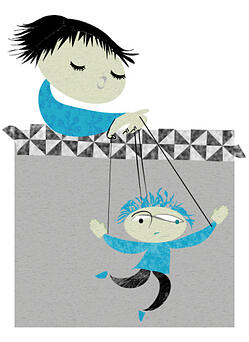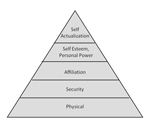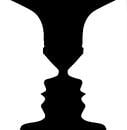 Nobody really runs out of ideas, but sometimes it sure feels that way. Especially those times when you desperately want something miraculous to happen… a big increase in sales, a new client to boost your business, a big idea that suddenly changes everything. Nobody wants to feel like they're tapped out. Here are some thought starters I've used over the years to help stimulate the creative process.
Nobody really runs out of ideas, but sometimes it sure feels that way. Especially those times when you desperately want something miraculous to happen… a big increase in sales, a new client to boost your business, a big idea that suddenly changes everything. Nobody wants to feel like they're tapped out. Here are some thought starters I've used over the years to help stimulate the creative process.Read something
Pick up a book, a magazine or some other reading related to your issue. Nothing stimulates your thinking like seeing what has worked and not worked for others. When I was an art director in advertising, I began every major project by flipping through a few issues of Communication Arts. Just seeing brilliant work done by others gets the brain excited about the possibilities of the project at hand. It not only puts you in a mode that says "I want to do stuff like THAT!" but it gives your mind creative bits and pieces to begin to play with. I might see a special way that the type was handled, or a photo combined with a chunk of color that could give me a starting point for something I'd never tried before. Ideas spawn other ideas. Let the work of others ignite that spark of inspiration in you.
Involve someone
We've all heard the phrase, "Two heads are better than one," but sometimes we feel like WE are the ones who have to solve something, prove something, or lead the way through messy waters. That's ego talking, not what makes sense from a broader perspective. We all have distorting filters that color our perceptions in different ways. As Ginny Whitelaw states, in The Zen Leader, "Our layers of distorting filters based on our human limitations, culture, family, gender, age, strengths, weaknesses, experiences, fears, position in life, and on and on, create our perceptions and the meaning we make of 'out there'." Get someone involved in helping you solve the problem. In fact, get several someones. You'll find the benefit in collaboration and may uncover a solution you wouldn't have come up with on your own.
Step back
If you're like me, when you're trying to fix something and it's not working, you do what you think is the logical thing - push harder. This rarely ever works, yet we continue to drive, thinking more effort will do the trick, when what we really need to do is stop.
One of the flips in The Zen Leader, From Driving Results To Attracting The Future, speaks to this beautifully: "The flip to attracting the future is simply connectedness applied to sense what future is possible and how to bring it into the present. I say 'simply' because it's not complicated, but it IS subtle. If we're driving results full steam ahead, and not getting where we want to go, or not wanting what we're getting, we have to slow down to even approach this state of connectedness in which acute sensitivity gives rise to insight. Better yet, stop."
Take a break, step back, and stop what you are doing. The energy of the situation needs to realign itself and it can't happen when you're pushing. Driver energy is only one of the 4 energy patterns that you have available to use, and the situation is begging for something else. If you'd like a handy desktop reminder of the other energies besides the pushy Driver, you can download a free FEBox (named after the FEBI that measures these energy patterns).
The creative process IS a process, much like gardening. We need to prepare the soil, plant the seeds, feed/water, and sit back and wait. And when we can involve others in the process, like planting more than one seed at a time, a garden of ideas awaits us.
What other idea-generating practices work for you?







 ted last week around
ted last week around 

